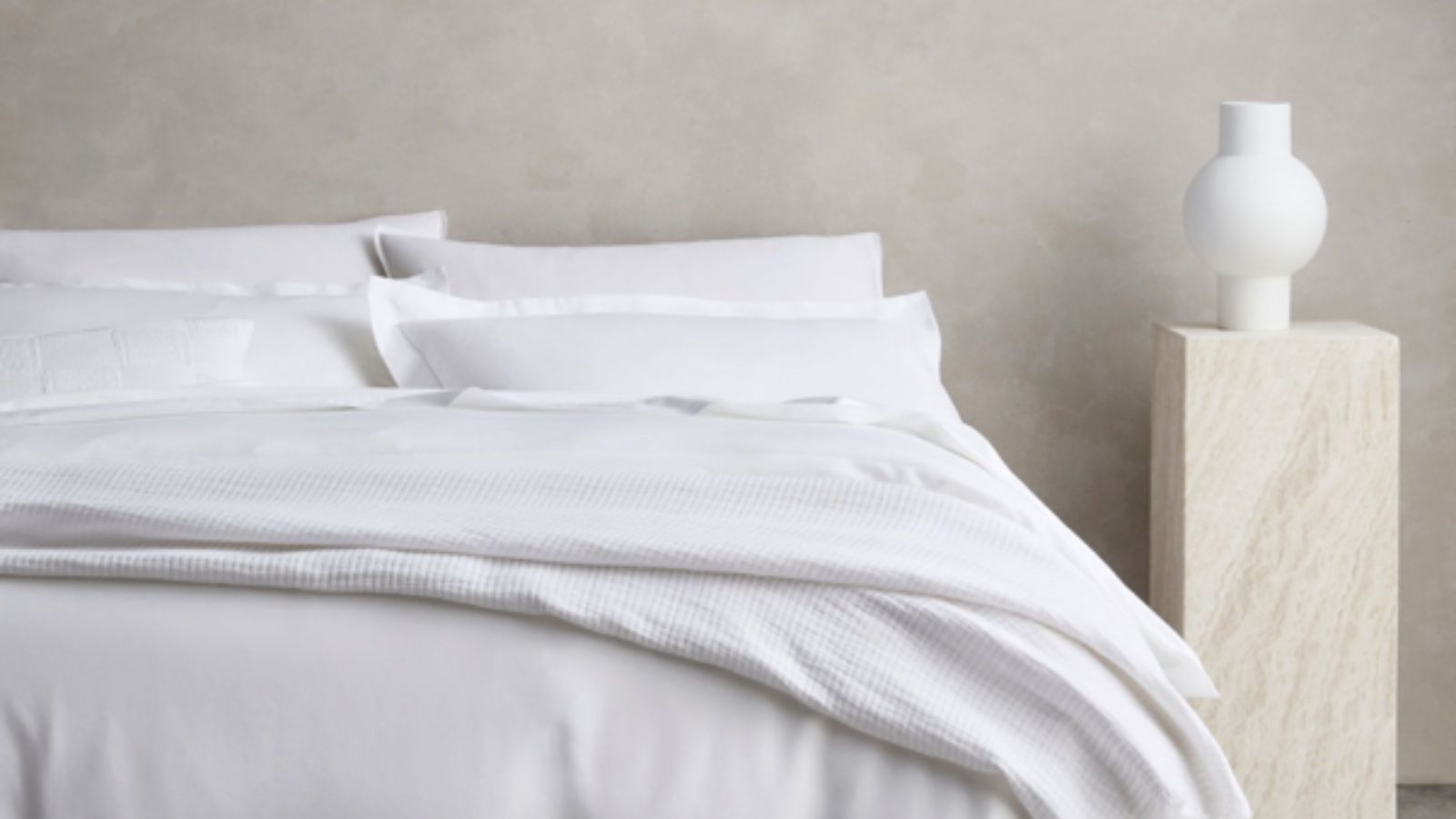6 ways your pillow is ruining your sleep quality – and expert advice on fixing it
These tips could just change your life


When it comes to a great night's sleep, many of us often spend on a mattress but neglect to think about our pillows. Experts suggest, however, that your pillows may be disrupting your sleep if you have the wrong type or height.
Given that we spend approximately 33% of our lives asleep, picking the best pillows will ensure that time is spent in comfort and relaxation, rather than giving ourselves a stiff neck. Below, experts offer their advice for picking the right pillow and issue warnings against ill-suited sleep supports.
Why your pillow is disrupting your sleep

While it is commonly believed that having the best mattress is the most important element for sleeping better, having the right pillows to match will help support your natural spine alignment and relieve pressure on your spine, neck and shoulders.
'Using a pillow that’s not right for you can result in you waking up with pain in your neck and shoulders, as well as other areas of your body,' says Theresa Schnorbach, sleep scientist at Emma - The Sleep Experts. 'It can also affect your ability to fall and stay asleep.'
1. It doesn't suit your sleep position
Pillows need to be chosen to suit our individual sleep positions; get it wrong and you will suffer poor alignment and neck ache.
'Everyone is different and so your perfect pillow will depend on your unique body and sleep habits,' Theresa Schnorbach says, 'but it’s worth remembering that all pillows should be comfortable and support your head, neck, and shoulders.'
This means not just blindly buying the same pillow for everyone in the household but working out which is your predominant sleep position, and finding a pillow to suit.
Design expertise in your inbox – from inspiring decorating ideas and beautiful celebrity homes to practical gardening advice and shopping round-ups.
'When it comes to matching pillows to different sleeping positions it’s complicated,' she continues, 'but there are some basic rules that will help determine which pillow matches your sleeping style. Stomach sleepers tend to prefer soft pillows or, in some cases, no pillow at all. Instead of a pillow underneath their heads, a stomach sleeper might opt for a pillow under their stomach and pelvis instead to keep their bodies aligned.
'Back sleepers usually favor a thinner, flatter pillow to keep the neck in alignment with the spine. They may also prefer a softer pillow. However, back sleepers experiencing neck pain should consider a supportive pillow.
'On the contrary, side sleepers tend to choose a thicker, firmer pillow. A good rule of thumb is to find a pillow as thick as the distance between your shoulder and the opposite ear.'
2. It doesn't suit your mattress
Buying a new pillow at the same time as you buy a new mattress is the ideal because, surprise surprise, they need to work together to ensure comfort.
If your mattress is soft, your pillow will need to work differently than if your mattress is hard. The general rule is that lower pillows work better with softer mattresses; taller pillows with harder mattresses, though of course, the loft of your pillows will be affected by your sleep position.
Ideally, try both out at the same time. If your pillow is too high your neck will be bent abnormally in one direction, adding to the tension or stress on your spine rather than alleviating it after a long day. A pillow that is too low or has flattened over time will equally strain the neck muscles as they attempt to stabilize themselves, leading to pinched nerves, stiff joints, and pain throughout the day.
'Having the right pillow is just as important as having the right mattress if you want to get the best night’s sleep,' continues sleep expert Theresa Schnorbach. 'Studies have shown a link between sleep quality and the comfort of pillows, with participants who complained about poor sleep quality likely to have also criticized the comfort of their pillow. Researchers also found that poorer sleep quality was significantly associated with neck stiffness the next morning.'
3. You've chosen the wrong filling
Just as you have a mattress type you like, it's likely a particular filling will suit you more than others.
'Feather pillows might be an option if you prefer light and soft pillows that come from duck or goose fibers, however, these can be quite expensive and are not hypoallergenic.
'Microfiber pillows are great for those looking for a hypoallergenic pillow that is also firm and foam pillows, are perfect for those looking for a pillow that adapts to their specific shape. These are also ideal for those with head, neck, or shoulder pain as they contour to these specific areas and offer support,' says sleep expert Theresa Schnorbach.
'Studies have shown that foam and latex pillows provide the best support, which can improve the quality of your sleep.'
4. It's aggravating your allergies
Waking up wheezing or always sneezing in bed?
'Foam pillows have the benefit of being hypoallergenic, which prevents the spread of bacteria and allows those with allergies to breathe better through the night, being durable and staying in shape without forming lumps, and being quieter, which means less disturbance for you and your partner during the night,' says sleep expert Theresa Schnorbach.
5. It's the wrong weight and size
'Depending on how much you move your pillow during the night, weight might be an important issue for you,' says Theresa Schnorbach. 'Cotton and down pillows are lighter than foam and latex options. Most people go for standard-size pillows as they are easier to find pillowcases for. If you go for smaller or larger pillows, make sure the case you select is the right fit to make sure you aren’t stuffing the pillow inside or letting it swim in a sea of fabric.'
6. It makes your head hot
Think not just about the material of the pillow, but also the pillowcase.
'A breathable pillowcase will ensure that heat flows from your head to the pillow and out into the atmosphere, so you don’t overheat at night,' says Theresa Schnorbach.
How do you know if your pillow if too high?
If you sleep on a pillow that is too high or are wondering how many pillows you should sleep with and if you're getting it wrong, you can tell by lying on your bed, head on pillow and checking your neck alignment (or asking your partner to). If you find that your neck is bent either upwards or sideways (depending on if you sleep on your back or your side), it is not in a neutral position. A pillow that is too high will case strain, leading to neck pain or stiffness each morning.
What happens if your pillow is too low?
If your pillow is too low, then your neck will strained as you try to sleep, no matter if you sleep on your side or on your back. The ideal sleeping position allows for a neutral neck and spine alinement, supporting your spines natural curvature without causing any strain whatsoever.

Chiana is Homes & Gardens’ kitchen appliances editor. With a lifelong passion for cooking and baking, she grew up experimenting in the kitchen every weekend with her baking-extraordinaire Mom, and has developed a great understanding of how tools and appliances can make or break your ideal relaxing kitchen routine.